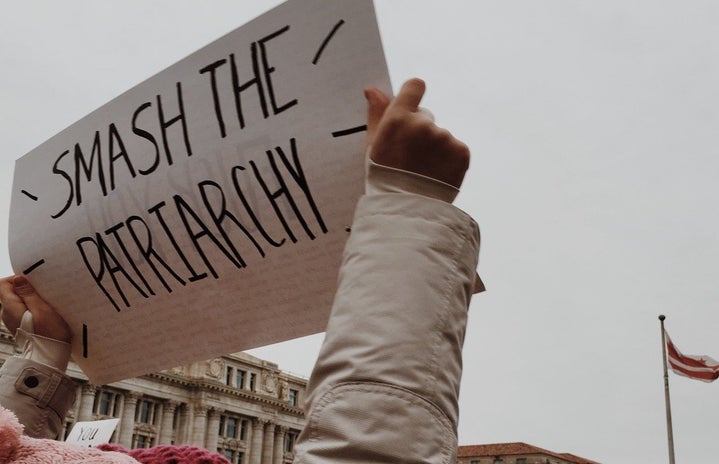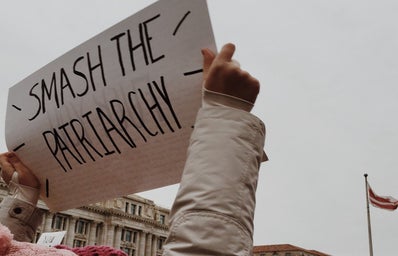TW: This article discusses abuse.
The concept of feminism is a broad spectrum where different definitions are stated when asking a variety of people. This spectrum lies within a range of the basic idea of feminism to the extremist side of it. I will be discussing feminism at its basic core, “Equality for all” including Trans individuals, disabled individuals and many more minority groups. However, the concept can be further dissected into means of equality. So, when I use equality in this article I speak of substantive equality.
Relationships are difficult enough to navigate with the standards, expectations, restrictions and demands that it requires. A discussion that has become more prominent with the inclusion of modernity in society is the concept of introducing feminism into relationships.
Historically, the societal norms have seen heterosexual relationships maintaining dynamics of patriarchal culture, where the man pays for the bill, the man courts the lady, the man is the breadwinner of the household where men are seen as initiators and women are more of the caregivers. However, society is changing. Not only are we seeing a broader spectrum of what relationships are, but the dynamics within them are evolving as well.
Of course, many anti-feminists believe that feminism ruins everything [an absurd argument but it is a real argument presented]. So, does feminism ruin relationships? According to a Quartz article by Viren Swami, they take a stance that the misconceptions of feminism have become the root of why many people would view feminism as incompatible with romance or any form of relationship. However, to dissect this they get into the nitty-gritty of women having had played passive roles in the past in terms of romantic relationships and sex, however with the evolving times women have started taking active roles in initiating relationships and playing dominant parts in their own sexual pleasure.
They stipulate that studies have shown that women who find themselves in relationships with feminist men reported healthier relationships, “in both quality and long-term stability – than those in relationships with non-feminist men.” These dynamics also apply to queer relationships, a big misconception about the queer community is that because we are queer, we are automatically feminists and I am here to tell you that, that is not the case. Some individuals within the queer community maintain patriarchal views of “man” and “woman”.
BENEFITS
Let us discuss the benefits of a feminist relationships.
1. ABUSE
I use this title because in South Africa this is one of the biggest issues faced by women. South Africa is a very patriarchal state. Something as simple as a woman paying the bill or holding their own financially alleviates issues of financial coercion and abuse. However, this particular topic is multi-layered in terms of redistribution and restitution of opportunities, wealth and education for women who have been a group supressed and oppresses during the Apartheid regime. However, this in itself is a catch-21 situation, statistics show that women who are financially dependent on their partner have a higher chance of not receiving an education/higher education and a higher paying job, if a job at all. Thus, the dependency on the man is based on necessity and yet, there is another restraint of ever making it out. However, for those who can afford and their situation allows for it, financial freedom allows for the reduction of abuse and less dependency on the spouse who can use this as mean for financial coercion. It is almost an important entry point. Wherever necessary equality with finances goes a long way.
The equal involvement in housework and childcare results in the decrease in divorce rates as well.
3. GREATER RELATIONSHIP STABILITY AND FREQUENT SEX
4. MANY MORE
There are many more benefits, Kathomi Gatwiri speaks about the way her relationship and her partner was reformed and shaped by Feminism and the benefits it had on their relationship to name a few she speaks about:
- Addressing the gendered nature in terms of gender roles
- Created a deliberate and intentional form of self-love
- An open atmosphere where both partners can share their emotions and even cry!
- It changes the way you fight and disagree! It is healthier!
So now, there are many more benefits to what Feminism can introduce into a relationship but although I touched on it a bit, what can introduce feminism into a relationship look like?
FEMINIST MEASURES:
This one is one of the easiest ways to start, of course there are people out there who enjoy being spoiled by their partner and that is also very valid. However, once in a while, you too can do the spoiling if you want to. This will be the first step into introducing a shift in dynamic where you do not have to subscribe to patriarchal norms.
2. Shoot your shot
This one is more directed to individuals in whom the patriarchal system does not favour. I have friends who wholeheartedly stand by the binary, where they believe women should not make the first move and also, I have friends who believe on butches or studs have to make the first move in a queer relationship because they are closer to the societal person of “manly” similarly to gay man who believe that only the masculine men should do the approaching. These are false notions, if you prefer it like that, it is of course your right however, if you want to redefine the patriarchal system and norms that we live in, especially within your relationship, I say shoot your shot.
3. Speak Up!
One thing that is very important and essential is speaking up when things do not feel fair or equal, saying “NO” and creating boundaries where necessary. If you feel like you are not being treated fairly, tell your partner! Your partner cannot and will not read your mind! It is important as a feminist to advocate for yourself when something is not right so that in the long run it does not hurt either one of you and if they do not stop, they are the wrong one.
4. Ask for Sexual Pleasure!
One thing I love about the dynamic of queer relationships is that idea that everyone is worthy of sexual pleasure, of course this is a generalisation but woman shy away from asking their partner to pleasure them. Sex is an important part of a relationship and every. Single. Party. Should be satisfied. You are both in this relationship. Your sexual pleasure is just as important.
5. CONSENT!!!!!
Using our voices is an important part of feminism. Consent is important and should always be used during any sexual activity. Or any activity as a matter of fact.
6. Boys (and masculine presenting or trans males or any male associated form) DO CRY!!!
This article may have seemed like a direct talk to men as an issue (it’s not), however, I have read it many times when women state that “I don’t want a man who cries”, “we both can’t be girls”. These statements and false narratives create a platform for toxic masculinity and bottled emotions which turn to trauma and eventually suicide and abuse. Feminist relationships promote talks that involve emotions and create a platform for healthy communication.
7. Questioning your preference
One of my favourite things listed in Bustle article on Feminist relationship is this subsection. They stipulate that it is almost unlikely for progressive people to have problematic preferences and it is important to dissect that, such as race and body weight etc. They urge individuals to expose themselves to unconventional representations and only consider what is important.
8. There are many more, which you can check out here.
Every relationship can be defined anyway the partners want it to be, take into consideration introducing feminism into it. In the long- run maintaining traditional gender roles that perpetuate inequality can inflict more harm than it does any good. Thus, “Gender equality in relationships doesn’t mean that we lose the romance. If anything, it lays the basis for more satisfying and healthier relationships.”


